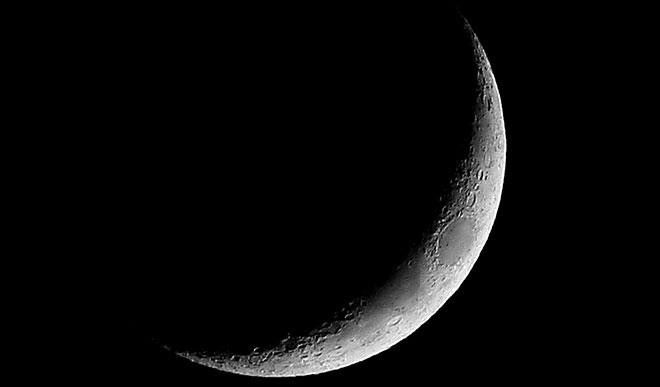
Fasting became obligatory on the Muslims a year after the Hijra (migration of the Prophet from Makkah to Madinah. Thus the Prophet (s.a.w) observed fasting in the month of Ramadan while on earth. As we count down to the beginning of fasting for 1439 AH, it is important we keep in mind what the whole exercise is all about. Among many others, I found al-Ghazalli’s perspective highly instructive. According to him, fasting can be divided into three: ordinary fasting, fasting of the elites in the spiritual realm and fasting of the elites of the believing elites. The first, which is ordinary fasting, belongs to the large majority of Muslims. These are individuals and groups of individuals who observance of fasting consists strictly and only of abstinence from food, drinks and sexual relation during the day. In addition to the latter, they usually indulge in vain talks and other acts that are ordinarily frowned at for conscious Muslims. Of what value is his fasting, he who is found in the quarters of women during the day; he who watches obscenities and indecencies as a strategy to ‘kill’ time during the month of Ramadan?
The second variant of fasting in al-Ghazaali’s schema, namely fasting of the elite, refers to a fast in which the servant of the Almighty avoids the pitfalls identified above with reference to ordinary fasting. Fasting of the elite entails keeping one’s ears, eyes, tongue, hands and feet – and all other organs – free from sin during the fasting period.
The third variant or form of fasting- fasting of the elite of the believing elite- refers to fasting of the heart from unworthy concerns and worldly thoughts, in total disregard of everything but the Almighty, Great and Glorious He is. This kind of fasting is broken by thinking of worldly matters, except for those matters that are conducive to religious ends, since they constitute provisions for the Hereafter and are not of this lower world.
Those versed in the spiritual life of the heart have even said that a sin is recorded against one who concerns himself all day with arrangements for breaking his Fast. Such anxiety stems from lack of trust in the bounty of the Almighty and from lack of faith in His promised sustenance. To this third degree belong the Prophets, the friends of the Almighty. This type of fasting does not lend itself to detailed explanation in words, as its true nature is better revealed in action.
In order to belong to the third group, the elite of the believing elites, six things are required for its accomplishment. One: see not what displeases the Almighty. Our Prophet (s.a.w) says: “The furtive glance is one of the poisoned arrows of Satan, on him be the curse of the Almighty. Whoever averts his eyes from looking at the forbidden, such will receive from Him, Great and Glorious is He, a faith the sweetness of which he will find within his heart.’
Two, say not that which displeases the Almighty. Guarding one’s tongue from idle chattering, lying, gossiping, obscenity, rudeness, arguments and controversies and adopting and observing silence while remembering His essence through recitation of the Quran is one of the ethics a believer learns in fasting. Remember this from the Prophet; “two habits annul Fasting: backbiting and telling lies”.
Three, avoid listening to what displeases the Almighty. A Muslim who is fasting should endeavour to close his ears to everything reprehensible. This is because in Islam that which talking about is unlawful, listening to it is equally unlawful.
Fourth, eat and drink that which is lawful. In other words, the rewards accruable to the believer during the month of Ramadan would be redeemed in full once she keeps away from sin. It is meaningless to abstain from lawful food during the day only to break one’s fast with that which is unlawful. Whoever does that could be likened to one who builds a castle but demolishes a city. The unlawful is a poison: it is deadly to religion, while the lawful is a medicine, beneficial in small doses but harmful in excess.
In other words, one important caution that is very apposite is the need for Muslims to avoid filling their stomachs with the lawful during this month. Our Prophet reminds us that there is no receptacle more odious in the sight of the Almighty than a belly stuffed full with lawful food. Of what use is the fasting if at the time of breaking it one not only makes up for all one has missed during the daytime, but perhaps also indulges in a variety of extra foods? The essence of fasting is, among others, weaken the appetitive and vegetative forces in humans which are Shaytan’s means of leading us back to evil. It is therefore, essential to cut down our intake of food to what one would consume on a normal night, when not fasting.
During this month, it is essential that our hearts should swing like a pendulum between fear and hope. For we do not know, for certain, if our fasting will be accepted, and through that become one of those who would find His favour. In other words, we should pray to Him to accept our acts of worship despite their inadequacies.

 Join Daily Trust WhatsApp Community For Quick Access To News and Happenings Around You.
Join Daily Trust WhatsApp Community For Quick Access To News and Happenings Around You.



